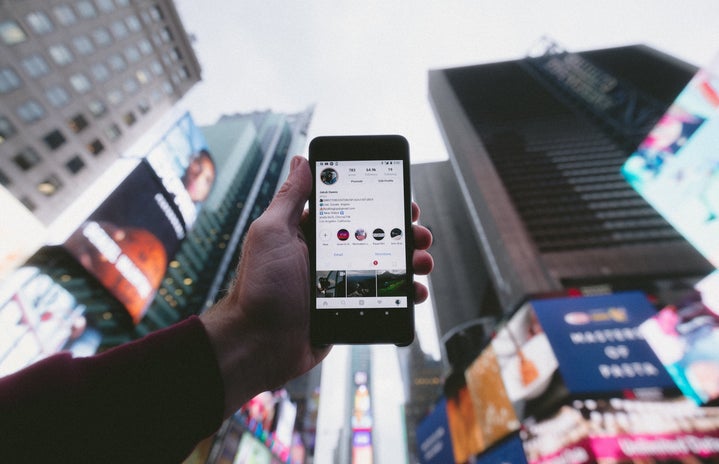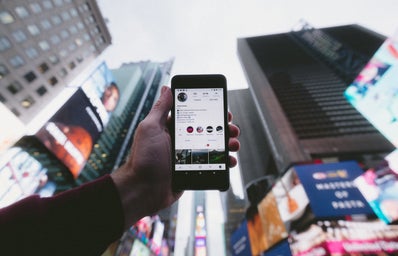Dating rules are as old as the concept of dating itself. Just like any other genre of social norm, the rules are passed down between generations, reinforced by negative and positive feedback systems. As ridiculous or outdated as some of the rules may be, it is something we hold onto because it’s what our parents, peers, and trusted ones have told us all of our lives. The man should always be the one to ask the woman out on a date. The man should always pay. The woman should never sleep with a man on the first date if she hopes for a second date. Technology has certainly complicated this dynamic. Not only do women have to be aware of these “traditional” rules, but social media and texting have further complicated an already delicate and meticulous game. When I tried to explain to my parents and older coworkers the new dating rules in the social media age, they were perplexed and intrigued. Wait at least double the time it took him to respond before you respond, otherwise you’ll seem too eager. Don’t like his pictures on instagram within the first hour that he posts it. Wait until he snapchats you first. As unnecessary and exhausting as it sounds, you have to follow the rules in order to play in the game. While our society has moved far away from the era of “going steady,” the college dating scene seems to be caught at the intersection between rigid gender norms and new age feminist ideals of sexual fluidity and women empowerment.
Social media has also changed the way we achieve intimacy with others. The amount of information that we post about ourselves online has made the information search more accessible and prone to manipulation. You no longer have to have a face-to-face conversation with someone in order to find out the personal and intimate details of their life. With a quick Facebook search, you can figure out where the person of interest is from, where they went to school, who they’re friends with, and how many siblings they have. You can portray yourself as hilarious and witty through tweets and blogs, but never crack a joke in real life. Instagram can be used to create an ideal portfolio of our lives, of the fun vacations we’ve taken, accomplishments we’ve achieved, amount of friends we’ve gained, or amount of weight we’ve lost. But through this process of social media stalking and self-projection, are we really getting to know the true individual, or the fabricated online version of themselves?
Many discussions about new age feminism often segway into the debate about the pervasive hookup culture. Is this social phenomenon a byproduct of the sexual liberation movement that was started by feminists in the early 70’s, or has society finally accepted that women have as much biological desire for need fulfillment as men do? Maybe it’s neither. Looking at a study done by the American Society of Sociology, while there seems to be “the broad inference that people are having more sex” today than in previous generations, “Teenagers today are far less likely than their parents were to have sex or get pregnant. Between 1988 and 2010, the percentage of teenage girls having sex dropped from 37 to 27, according to the latest data from the Centers for Disease Control and Prevention.” So are more women really becoming more sexually liberated and active, or are we falling under the false notion that “everybody is doing it?” As Hannah Rosin writes in the Atlantic, the hookup culture has allowed women to enjoy transient relationships without hindering their career or professional paths. Furthermore, more women are now delaying marriage in favor of career advancement and financial independence. Many new age feminists commend the loosening of the dating scene as being more beneficial and opportune for women, but many social scientists argue that the hookup culture is ultimately detrimental to young college women’s self-esteem and sense of security.
There are numerous studies conducted by social scientists and health research bodies alike that all try to answer the question: is the hookup culture hurting or harming young women? The answer to this question could constitute another entire essay or dissertation paper, but to summarize these reports, the answer really depends on how you view the reported or observed satisfaction of women. While the hookup culture has allowed women to walk freely in this world of “non-commital” relationships, it has also lead to an increase in sexual assault and rape instances. So what’s a modern college girl to do? Do our feminist ideas that women should be able to experience and enjoy hooking up as much as men forfeit our ability to admit that we do still want committed and safe relationships? Does the positively skewed portrayal of our lives on social media truly convince ourselves or potential suitors that we are happy?
In her essay about her experience with the Middlebury hookup culture, recent graduate Leah Fesser perfectly summarizes this modern frustration of navigating “undefined” relationships when she says, “After I began having sex with these guys, the power balance always tipped. A few hookups in, I’d begin to obsess, primarily about the ambiguity of it all. My friends and I would analyze incessantly: Does he like me? Do you like him? He hasn’t texted in a day. Read this text. I’m so confused.”
When I read this essay, I couldn’t help but think of all the time and emotional effort I’ve wasted in college obsessing and interpreting the meaning behind a text or snapchat. Did he include a punctuation mark at the end of the sentence? Which emoji did he use? How long did he take to respond? He looked at your snap story, but didn’t respond to your text? I’m so confused. We sit there analyzing every timing of the response or lack of response, dissecting the syntax and verbiage, as if we are uncovering some hidden meaning or motive behind their words. I’ve even started group chats with several of my friends to help me craft perfect responses to guys I was interested in, in hopes of him making the first move or asking me out on a date. Taking a step back, I realize how silly the whole process is and how frivolous my frustrations were, but I know that I’m not alone in this mindless struggle. So why do both men and women continue to invest in this high risk and low return game of college dating? At the end of the day, no matter how much we despise the game, we know we have to play by the rules to make our investment worthwhile.


